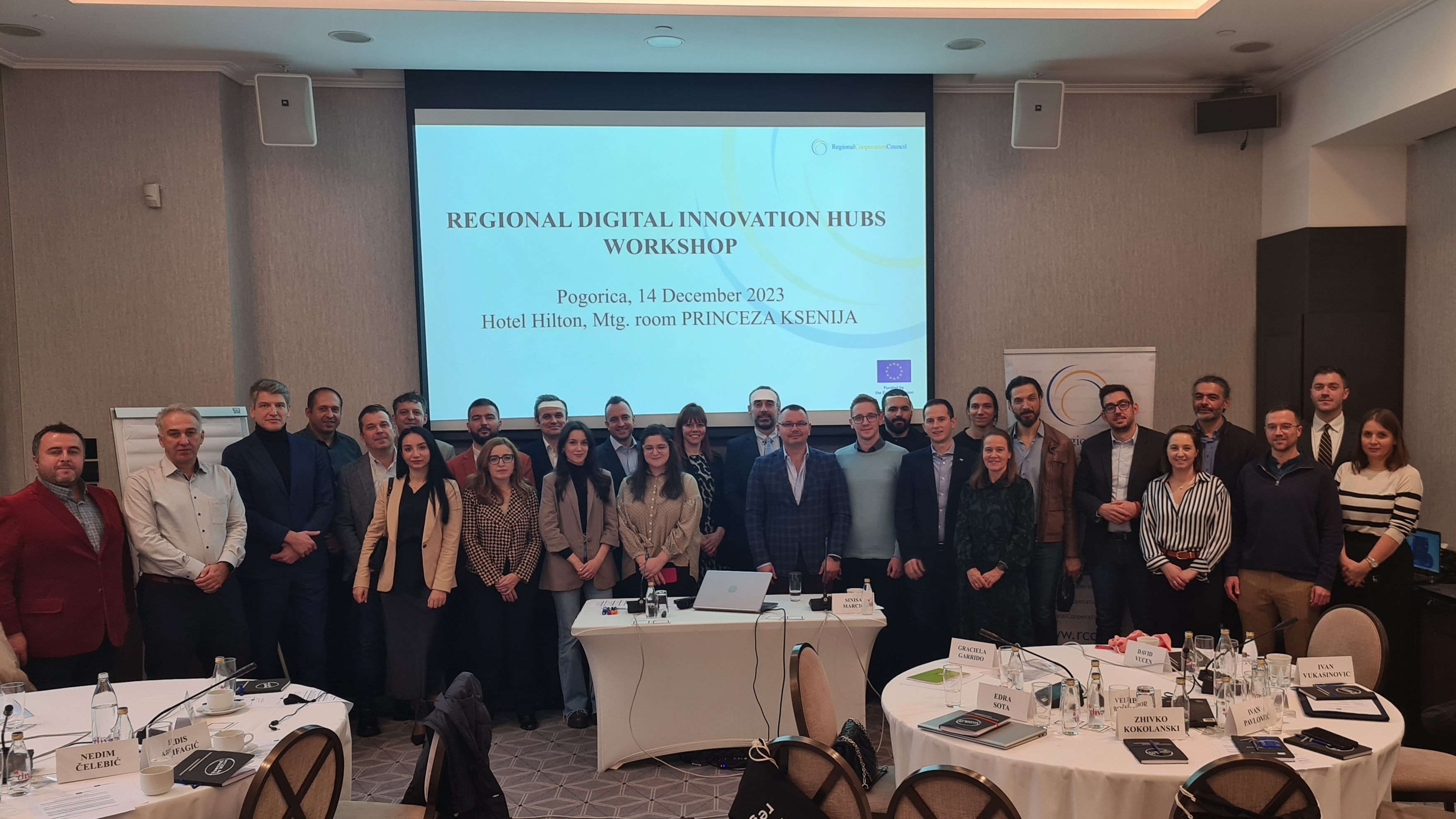Regional Digital Innovation Hubs Workshop in Podgorica

On December 14th, Podgorica hosted the Regional Digital Innovation Hubs Workshop, a part of the RCC’s ongoing “Support programme for development of Digital Innovation Hubs (DIHs) in the Western Balkans”.
Representatives from all WB economies convened at this event.
The workshop aimed to achieve two main goals: to aid DIHs in collaborating for joint project proposals, seeking funding and capacity-building schemes from the EU, and to facilitate networking among regional DIHs.
Why Regional Digital Innovation Hubs Workshop?
The workshop aimed to achieve two main goals: to aid DIHs in collaborating for joint project proposals, seeking funding and capacity-building schemes from the EU, and to facilitate networking among regional DIHs.
The workshop comprised four sections. The opening session featured news sharing by DG CNECT and DG R&I, encouraging proactive steps for utilizing available opportunities by the region’s DIHs.
The RCC’s representative gave an overview of the region’s innovation ecosystem by focusing on research, innovation and business dimensions.
Consultants from Econet/FundingBox shared success stories and stressed the significance of collaboration and networking among partners, offering insights on accessing existing DIHs networks.
The representative of the “Innovation and Digitalisation in Small and Medium-sized Enterprises in Bosnia and Herzegovina/EU4DigitalSME” project shared key lessons learned.
In addition, the representative of “Smart4All”, a European network of DIHs for boosting technology and business development in South, Eastern and Central Europe urged active participation from the region's DIHs.
The last session focused on fine-tuning project scopes as part of project proposal preparation and forming regional consortia. Most participating DIHs expressed interest in being involved in preparing project proposals.
Where to next?
It was unanimously agreed that the region’s DIHs, including the more advanced ones, require capacity building.
Participants found the Support programme and the workshop exceptionally useful, informative, and practical.
Networking emerged as a highly beneficial aspect for all participants within the programme.
The concept of DIHs is emerging in the Western Balkans, while the EU’s DIHs and EDIHs are rapidly evolving.
Consequently, the RCC has been strongly urged to consider a follow-up programme in 2024 to sustain the positive momentum.
